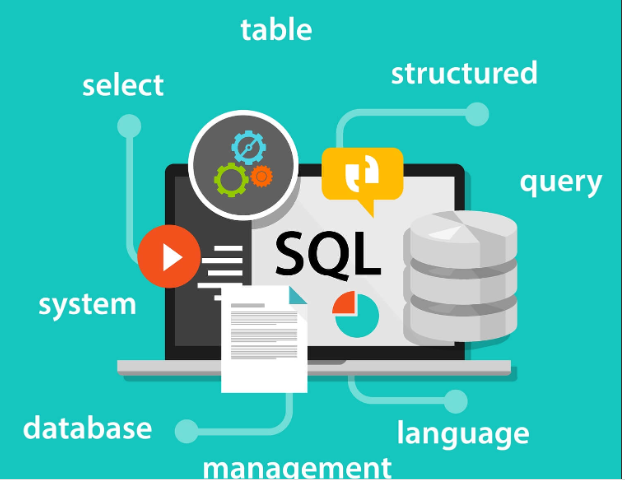In the modern world of data science, SQL (Structured Query Language) is the cornerstone of data management and analysis. It is the common language for communicating with databases, getting data, and carrying out intricate analysis to produce useful insights. Being proficient with SQL is advantageous and necessary for data scientists who want to manage the complexities of large datasets and extract valuable insights in the era of data-driven decision-making. This post attempts to function as a thorough tutorial on SQL, including advanced methods, necessary resources, and opportunities for data scientists in the future.
Importance of SQL –
Structured Query Language, or SQL, is a fundamental component of contemporary data analysis and administration. Its importance stems from its capacity to manage, query, and analyse enormous amounts of data effectively kept in relational databases. By enabling companies and organisations to derive actionable insights from their data, SQL promotes strategic objectives and educates decision-making. SQL is the foundation of many systems and applications that are essential to today’s data-driven economy, ranging from providing business intelligence solutions to handling transactional records. Its adaptability, dependability, and performance make it a vital tool for developers, scientists, and data analysts alike, influencing how businesses use data to meet objectives and maintain their competitiveness in a market that is changing quickly.
Why is it important to master SQL?
Being proficient with SQL is essential in today’s data-driven environment for multiple reasons. First of all, relational databases—the foundation of data administration and storage for numerous businesses in a wide range of industries—interact with SQL primarily. Data scientists who are proficient in SQL are better equipped to extract, manipulate, and analyse data in an effective manner, which allows them to gain meaningful insights and make decisions based on evidence from data.
Second, data integration and interoperability depend on having a solid SQL foundation. Sophisticated systems and applications of today require the capacity to seamlessly integrate data from various sources. With SQL, businesses can query and combine data from many databases and platforms using a standard language, which streamlines data integration efforts and gives them a full understanding of operations.
Furthermore, the development and upkeep of reliable data pipelines and ETL (Extract, Transform, Load) procedures depend heavily on SQL proficiency. Proficiency in SQL is crucial for the efficient design, optimisation, and automation of data operations, be it in the extraction of data from operational systems, its transformation into a readable format, or its entry into a data warehouse or analytics platform.

Additionally, maintaining data security, privacy, and regulatory compliance requires a strong grasp of SQL. Organisations may prove compliance with data protection laws like GDPR and HIPAA, secure sensitive data, and reduce the risk of data breaches by putting in place access restrictions, encryption methods, and SQL auditing procedures.
Here are the 8 resources that one requires to master SQL –
- Tutorials & Courses Online
There are several SQL courses available on online learning platforms like Coursera, Udemy, and edX, with options for students of all skill levels. Database administration principles, sophisticated querying strategies, and SQL fundamentals are all covered in these courses. Engaging courses on websites such as Codecademy offer practical experience, enabling students to hone their SQL abilities in an authentic database setting. A practical approach to utilising SQL for analytics and decision-making can also be learned through specific courses that concentrate on SQL for data science applications.
- Textbooks and Records
Books like Alan Beaulieu’s “Learning SQL” and Philipp K. Janert’s “SQL for Data Scientists” provide in-depth explanations of SQL fundamentals and best practices. The official documentation provided by database providers, such as MySQL and PostgreSQL, is an invaluable tool for learning SQL syntax, capabilities, and functions. These resources help students build a solid foundation in SQL by offering thorough explanations, real-world examples, and best practices.
- Community Engagement
Getting involved in online groups, including Stack Overflow and Reddit’s r/SQL, can help you solve common SQL problems and gain insightful knowledge. Learners can improve their comprehension of SQL ideas and problem-solving abilities by taking part in conversations and consulting with seasoned professionals. Furthermore, exchanging information and perspectives in community forums encourages teamwork and strengthens education among SQL community members.
- Advanced Methods and Optimising Performance
Data scientists can become more proficient in SQL by learning about advanced SQL techniques including window functions, common table expressions (CTEs), and query optimisation methodologies. Gaining an understanding of data modelling, indexing, and database design principles is essential to enhancing SQL efficiency and performance. Data scientists can improve performance and optimise workflows for data analysis by streamlining SQL queries and database structures.

- Combining business intelligence with data science
In data science workflows, SQL is essential for everything from preprocessing and data integration to reporting and model validation. Integrating data warehousing with business intelligence (BI) solutions allows data scientists to drive informed decision-making processes and extract insights. By utilising SQL for data analysis and visualisation, businesses can gain practical insights from sizable and intricate datasets, stimulating innovation and commercial expansion.
- Prospects for the Future and Emerging Technologies
SQL abilities will continue to be in high demand as long as data quantities continue to expand dramatically. The emergence of NoSQL databases, NewSQL technologies, and cloud-based data platforms offers data scientists fresh chances to advance their knowledge of SQL and adjust to changing paradigms in data administration. Furthermore, there are a lot of interesting opportunities for data-driven innovation and decision-making when SQL is integrated with cutting-edge technologies like artificial intelligence and machine learning.
- Data Protection and Ethics:
Responsible data management necessitates adherence to compliance regulations and data governance principles. SQL assists in the implementation of auditing procedures, data security measures, and access restrictions to protect sensitive data and reduce the likelihood of data breaches. Organisations may create a safe and legal data environment and gain the trust of stakeholders and authorities by utilising SQL for data governance.
- Ongoing Education and Career Advancement:
To remain current in the always-changing field of data science, data scientists must engage in continuous learning. Conferences, workshops, and online courses provide chances to learn new skills and remain current with business trends. Reading books, blogs, and research papers as part of a lifelong learning process broadens knowledge, and networking with peers and mentors offers insightful conversations and professional prospects. Adopting a mindset of perpetual learning guarantees that data scientists stay at the forefront of innovation and professional excellence.
To sum up, data scientists who want to succeed in the quickly developing discipline of data science must learn SQL. Through the use of a variety of resources, including books, online courses, community involvement, and sophisticated approaches, data scientists can establish a strong foundation in SQL and uncover new avenues for data-driven innovation. The future is bright for SQL expertise as the data landscape continues to change, providing data scientists with intriguing opportunities to influence the direction of data-driven decision-making. Accept the path of never-ending discovery and learning, and use SQL as your key to unlocking data science’s potential in the digital era.










Leave a Reply